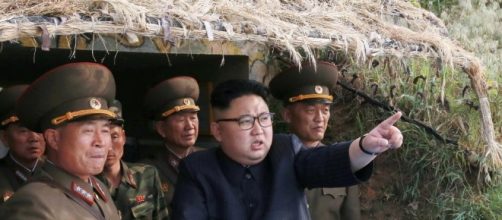United States intelligence confirmed that North Korea successfully tested a short-ranged missile earlier on Monday. It flew for six minutes from an airfield in Wonsan and landed in the Sea of Japan. U.S. officials grow weary as Pyongyang's missile research is gaining and achieving success.
What was the missile launched by North Korea?
According to South Korean sources, the missile appeared to be a variant of the SCUD missile. It flew an estimated 280 miles from an area near Wonsan airfield in North Korea. The SCUD missile was tracked for six minutes before it landed into the Sea of Japan.
The test was labeled as a success as the trajectory and flight patterns shown by said missile were consistent with a fully-functional SCUD.
The SCUD is a tactical ballistic missile created and developed by the Soviet Union. The type of SCUD used by North Korea is a new version of the old models designed by the Soviet Union. U.S. intelligence are getting weary over Pyongyang's second successful launch as it inches them closer to perfecting their ballistic capabilities.
How will the U.S. military react to North Korea's continued tests?
U.S. Defense secretary James Mattis said that allowing Kim Jong-Un's researchers to continually test their missiles will only make them better. Though SCUD missiles are not an imminent threat to the United States mainland, it does show a steady development rate of ballistic technology.
If not dealt with early, North Korea may have its first working medium and long range missile in no time.
U.S. President Donald Trump vowed to act against the continued belligerence of the rogue nation. He stated that the United States will not hesitate to conduct preemptive strikes on key North Korean facilities if needed. However, many are concerned that China will now react in favor of Pyongyang if the United States does make a preemptive move.
Aside from this, the U.S. military plans to place eight additional interceptor missiles in Fort Greely, Alaska. This would add ground-based interceptors that would be a deterrent for Kim Jong-un's regime.
The Pentagon will test its anti-ICBM, along with deployment of third carrier
Also, in response to the growing threat of North Korea, the U.S. military will conduct an anti-ICBM systems test. This will improve the defense system of the United States in order to intercept incoming hostile missiles.
In line with this test is the deployment of a third aircraft carrier, the USS Nimitz, into the Korean peninsula. Tension is rising in Asia as Kim Jong-un teeters on possibly triggering an all-out war with the United States.


